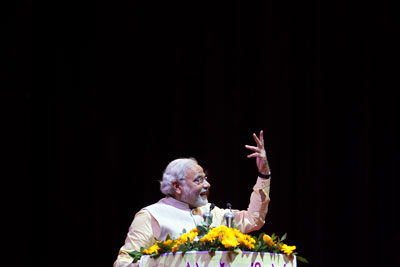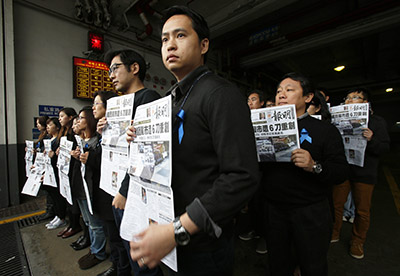
Blacklisted in Baluchistan
Pakistani Prime Minister Nawaz Sharif made a series of commitments to safeguard press freedom during a meeting with a CPJ delegation last week. Among them was a pledge to speak out in support of media freedom and against attacks on journalists, particularly in high-conflict areas like Baluchistan.
Mission Journal: Hope in Pakistan
For the last decade, Pakistan has been one of the world’s most dangerous countries for the media. At least 46 journalists have been killed, 24 of them murdered for the “crime” of covering the intelligence services, the Taliban, separatists in Baluchistan, or the criminal underworld. The result is a legacy of self-censorship and fear among…
FCCC survey finds China abuses press card, visa process
The Foreign Correspondents’ Club of China (Beijing) published the findings of its annual visa survey last week. The findings are grim but come as no surprise following the Chinese government’s showdown late last year with members of the foreign press.
Burma clampdown gathers pace as legislation passed
In a clear step backwards for press freedom in Burma, new legislation will give the government censorship powers and the sole authority to issue and revoke news publication licenses. While the legislation enshrines into law broad press freedom guarantees, specific provisions will give the Ministry of Information ultimate power over what news is permissible for…

Modi’s rise does not bode well for Indian press freedom
As India is set to hold elections next month, journalists covering Narendra Modi, India’s right-wing prime ministerial candidate, are reportedly coming under increased pressure online and in the newsroom for shedding critical light on him. Given these developments, free and independent reporting of the campaign is in doubt–as is the future climate for press freedom…
Chinese journalist Liu Jianfeng crowdsources his funding
Last July, veteran Chinese journalist Liu Jianfeng posted an announcement on the Chinese microblog Weibo, confirming his intention to become an independent investigator and writer. In a country where all media remains state-owned, Liu’s plan was a bold one. He promised to produce four to six independent, investigative stories in the coming year, and to…

Journalists in Hong Kong and China: see our security guide
CPJ’s Journalist Security Guide is now available in Chinese (PDF). The guide has been available in other languages for more than a year but, frankly, we didn’t see a Chinese version as a priority. Last year, after a university professor in China asked if he could translate some sections for his class, we began working…
Media surveillance and ‘the day we fight back’
Today, a broad coalition of technology companies, human rights organizations, political groups, and others will take to the Web and to the streets to protest mass surveillance. The mobilization, known as “The Day We Fight Back,” honors activist and technologist Aaron Swartz, who passed away just over a year ago. Throughout the day, the campaign…
